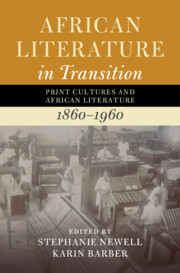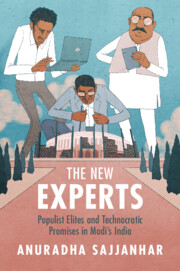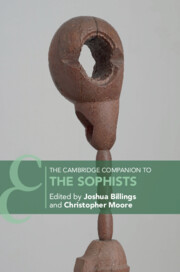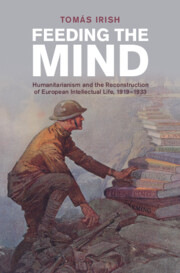Refine search
Actions for selected content:
50 results

African Literature in Transition
- Print Cultures and African Literature, 1860–1960
-
- Published online:
- 23 October 2025
- Print publication:
- 06 November 2025
Chapter 4 - Leadership in Ancient China
-
-
- Book:
- Leadership in the Ancient World
- Published online:
- 14 September 2025
- Print publication:
- 16 October 2025, pp 88-109
-
- Chapter
- Export citation
6 - Inside the Regime’s Market for Ideology (2005–2012)
-
- Book:
- The Rise of the Russian Hawks
- Published online:
- 11 June 2025
- Print publication:
- 29 May 2025, pp 170-212
-
- Chapter
- Export citation
4 - From Fringe to Mainstream
-
- Book:
- The Rise of the Russian Hawks
- Published online:
- 11 June 2025
- Print publication:
- 29 May 2025, pp 96-126
-
- Chapter
- Export citation
5 - The Rise of the Next-Generation Hawks in the 2000s
-
- Book:
- The Rise of the Russian Hawks
- Published online:
- 11 June 2025
- Print publication:
- 29 May 2025, pp 127-169
-
- Chapter
- Export citation
6 - Big Event
-
- Book:
- Exhibitionist Japan
- Published online:
- 06 February 2025
- Print publication:
- 13 February 2025, pp 156-184
-
- Chapter
- Export citation
Unsettling the Reflections in a Pond: The Educational Thought of José Ortega y Gasset
-
- Journal:
- History of Education Quarterly , First View
- Published online by Cambridge University Press:
- 22 January 2025, pp. 1-20
-
- Article
- Export citation
A Speechless Monarch: Early China’s Battle for Intellectual Authority
-
- Journal:
- Journal of Chinese History , First View
- Published online by Cambridge University Press:
- 12 November 2024, pp. 1-22
-
- Article
-
- You have access
- Open access
- HTML
- Export citation
Rajaratnam in London: Writing, race, and capital in Singapore’s intellectual history
-
- Journal:
- Modern Asian Studies / Volume 58 / Issue 6 / November 2024
- Published online by Cambridge University Press:
- 16 December 2024, pp. 1582-1607
- Print publication:
- November 2024
-
- Article
- Export citation
Unsettling the Reflections in a Pond: The Educational Thought of José Ortega y Gasset
-
- Journal:
- History of Education Quarterly / Volume 64 / Issue 4 / November 2024
- Published online by Cambridge University Press:
- 10 December 2024, pp. 490-509
- Print publication:
- November 2024
-
- Article
- Export citation
Serving All-under-Heaven: Cosmopolitan intellectuals of the Warring States period
-
- Journal:
- Modern Asian Studies / Volume 58 / Issue 4 / July 2024
- Published online by Cambridge University Press:
- 17 January 2025, pp. 1017-1042
- Print publication:
- July 2024
-
- Article
-
- You have access
- Open access
- HTML
- Export citation

The New Experts
- Populist Elites and Technocratic Promises in Modi's India
-
- Published online:
- 09 May 2024
- Print publication:
- 16 May 2024
5 - Rethinking the Islamic Republic
-
- Book:
- How Islam Rules in Iran
- Published online:
- 02 May 2024
- Print publication:
- 09 May 2024, pp 142-201
-
- Chapter
- Export citation
Introduction
-
- Book:
- V. S. Naipaul and World Literature
- Published online:
- 01 February 2024
- Print publication:
- 08 February 2024, pp 6-12
-
- Chapter
- Export citation

The Cambridge Companion to the Sophists
-
- Published online:
- 23 December 2023
- Print publication:
- 19 October 2023
3 - Prometheans
-
- Book:
- Red Secularism
- Published online:
- 30 November 2023
- Print publication:
- 30 November 2023, pp 63-88
-
- Chapter
- Export citation
Chapter 2 - Christian Authorities
-
- Book:
- The Early Christians
- Published online:
- 05 October 2023
- Print publication:
- 26 October 2023, pp 116-222
-
- Chapter
- Export citation

Feeding the Mind
- Humanitarianism and the Reconstruction of European Intellectual Life, 1919–1933
-
- Published online:
- 07 October 2023
- Print publication:
- 05 October 2023
6 - Who Were the Intellectuals?
-
- Book:
- Feeding the Mind
- Published online:
- 07 October 2023
- Print publication:
- 05 October 2023, pp 191-226
-
- Chapter
- Export citation
Epilogue: Beyond 1933
-
- Book:
- Feeding the Mind
- Published online:
- 07 October 2023
- Print publication:
- 05 October 2023, pp 227-245
-
- Chapter
- Export citation
